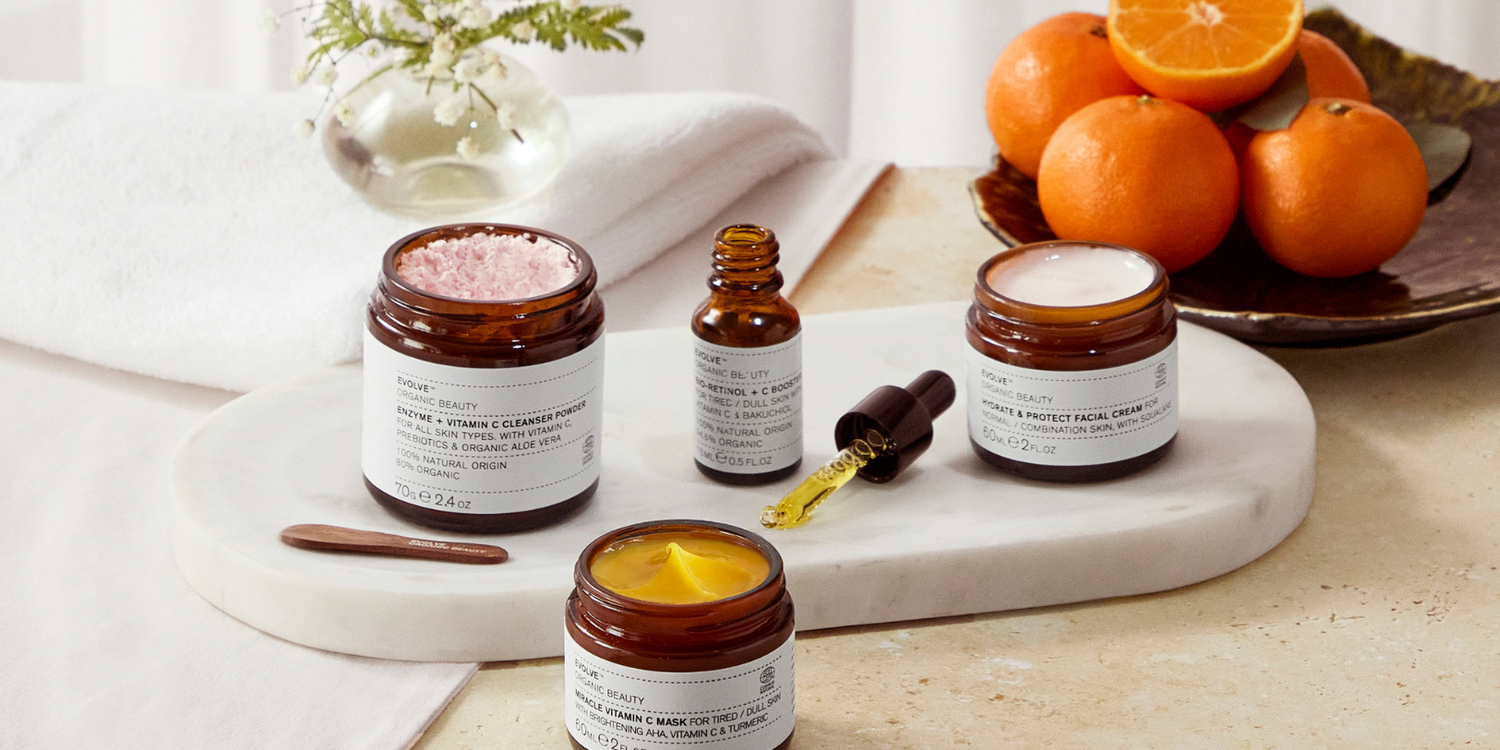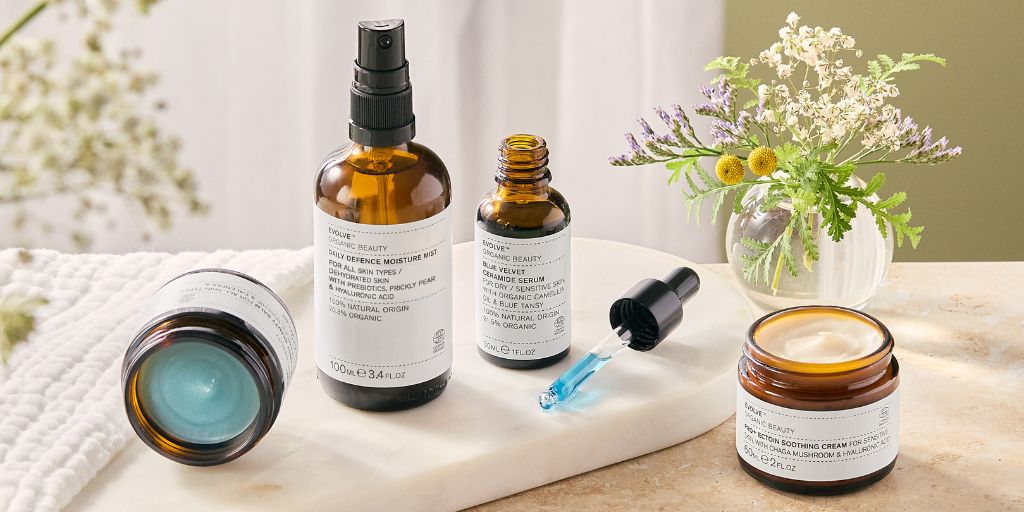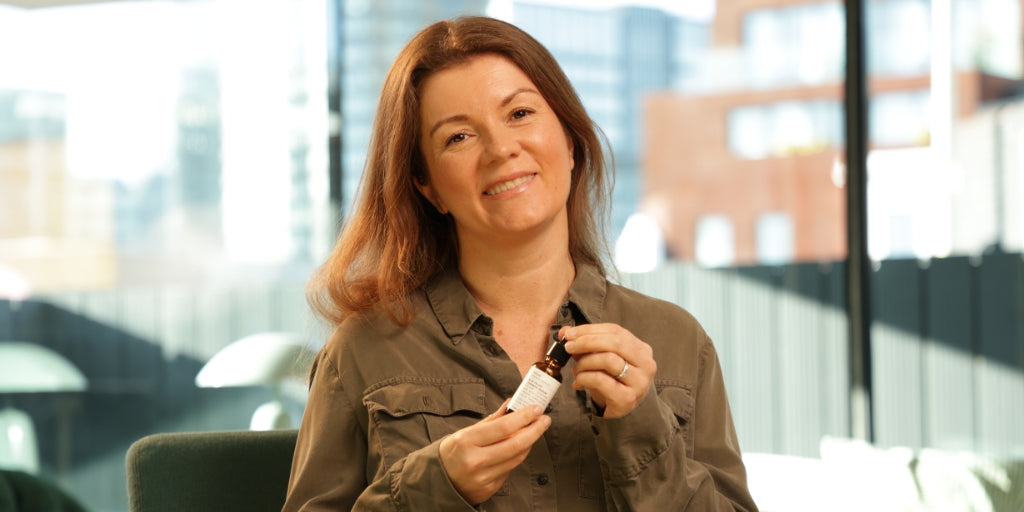Scientists love it, skincare gurus love it, and most importantly, our bodies love it – but what exactly is vitamin D and why is it so important?
Read on to find out more about this health hero.
What is vitamin D?
Vitamin D is a group of chemicals produced by the body when our skin is exposed to sunlight.
Or, scientifically speaking, vitamin D refers to a group of fat-soluble compounds that form in our skin when we spend time in the sun. These compounds are responsible for the healthy functioning of the body and consist of two main types:
- D2 – found in plants and often used in fortified foods
- D3- found in animal products and is the type your skin makes using sunlight
Both types carry out the same roles, but vitamin D3, or Cholecalciferol, is thought to be better absorbed and used by the body.

What are some benefits of Vitamin D?
Primarily, vitamin D helps to regulate the amount of calcium and phosphate in the body, which is essential for maintaining healthy bones, teeth and muscles.
However, there is also some evidence to suggest that vitamin D is great for maintaining a healthy immune system (i.e. tackling nasty viruses and flus), and could even help prevent some cancers, cardiovascular disease and multiple sclerosis.
This is evidenced by a series of scientific discoveries from the 1980s, which found that the role of vitamin D was massively greater than had previously been understood.
According to these findings, every cell in the body has a vitamin D receptor and at sufficient concentrations, the vitamin switches on thousands of genes. In particular, the immune system seemed to be hugely dependent on the availability of the vitamin. It enhanced both innate immunity – the original primitive immune system that is the primary defence of young children – and adaptive immunity, the system that creates antibodies to kill pathogens.
With everything going on over the past few months, it is little wonder that vitamin D has become such a major topic of discussion. Some people believe that if we can harness the power of this amazing vitamin to boost our immune systems, we may better be able to cope with the challenges of COVID-19.

How does vitamin D improve skin health?
Healthy levels of vitamin D have been demonstrated to prevent skin ageing, as measured by vitamin D’s ability to prevent the shortening of DNA strands called telomeres. These telomeres shorten with age, rendering the DNA more and more unstable, until the cell dies. Further, vitamin D helps to promote skin cell growth, repair and metabolism. If you suffer with a dry skin condition such as eczema or psoriasis, vitamin D may also help to relieve symptoms, though more research is needed in this area.
How do we get vitamin D?
Our body creates Vitamin D from direct sunlight on our skin when we’re outdoors.
During autumn and winter, our bodies see much less vitamin D from sunlight so it’s really important to get it from other sources. This includes a small number of vitamin D-rich foods, including oily fish such as salmon, mackerel, herring and sardines, as well as red meat, liver and eggs.
For vegans, you can get your daily dose of vitamin D from chestnut mushrooms and fortified foods such as some breakfast cereals, fat spreads and non-dairy milk alternatives. Another source of Vitamin D is dietary supplements.
In conclusion, there are 3 ways to get enough Vitamin D: from exposure to enough sunlight on your skin, from food sources and from a good Vitamin D supplement.

How much Vitamin D do I need?
10 micrograms (μg) is the average daily recommended intake of vitamin D for children and adults, though this will vary according to things like how often you go outside, the type of clothing you wear and your skin colour. Babies up to the age of 1 year need slightly less, at around 8.5 to 10 micrograms of vitamin D a day.
Most people should be able to get all the vitamin D they need from sunlight on their skin between late March and the end of September. During the autumn and winter, you need to get more vitamin D from your diet because the sun is not strong enough for the body to make sufficient vitamin D.
Certain groups will need more vitamin D in their diets throughout the year because they have very little or no sunshine exposure. This includes people who are frail or housebound or are in an institution (such as care home residents or hospital patients), or if they usually wear clothes that cover up most of their skin when outdoors. Darker skin tones are also thought to be more prone to vitamin D deficiency due to higher levels of melanin in the skin. Melanin is a pigment which effectively blocks out sunlight to shield skin against harmful UV rays. Other factors that can limit your sun intake include living in an area with higher air pollution, longer indoor working hours and gut health, weight and age.

What happens when your vitamin D levels are low and how can I tell if I’m vitamin D deficient?
A lack of vitamin D can cause bones to become soft and weak, leading to bone deformities such as rickets in children and osteomalacia in adults. Other symptoms might include bone and joint aches, fracturing, muscle aches and fatigue, a high incidence of infections, gum disease and constipation; but you can also be deficient and experience no symptoms at all. If in doubt, deficiency can be determined by a simple blood test at your local GP, or a reliable at-home testing kit such as this Test Your Intolerance one.
What happens if I consume too much vitamin D?
Taking too many vitamin D supplements over a prolonged period can cause your calcium levels to spike (hypercalcaemia), which in turn can weaken the bones and damage the kidneys and the heart. As a rule, it is always best to consult your doctor if in doubt, but the safe upper level of vitamin D per day is currently 100 micrograms. On the other hand, you never need to worry about your body making too much vitamin D from sun exposure, but always remember to protect yourself if you are in the sun for extended periods of time and cover up or use sunscreen to prevent burning. Wearing SPF, even in winter sun, can protect against signs of premature ageing, such as wrinkles, sagging and sun spots, as well as shielding against sunburn and melanoma.

You Might Also Like:
- How To Boost Your Immunity With Vitamin D
- How To Protect And Replenish Your Skin Biome
- 5 Scary Sounding Ingredients That We Shouldn't Be Afraid Of





